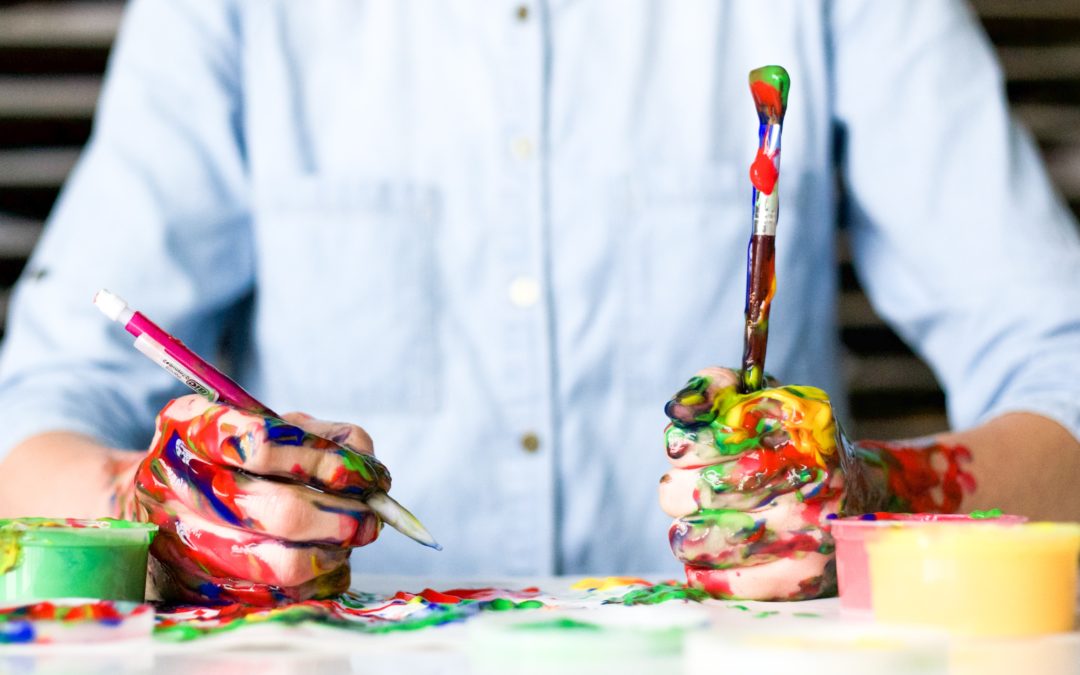There’s an old joke about a man who’s walking home from work one night to find a fellow on his hands and knees beneath a sidewalk lamppost.
‘What are you doing?’ he asks.
‘I’ve lost my gold watch,’ says the frantic stranger, ‘it was my great-grandfather’s and my father passed it on to me the day he died.’
Moved by the story, the man drops to his hands and knees and begins to scour the pool of lamplight for any sign of a gold watch. After 10 minutes of searching the man asks,
‘Do you have any idea whereabouts you dropped it?’
‘Oh, yes!’ says the watch owner pointing into the darkness, ‘over there somewhere.’
‘Well, why on earth are we searching here then?’ asks the man.
‘Because this is where the light is.’
When life is intense humans tend to contract. With limited mental and physical resources, we do the best we can to discharge our responsibilities, but we only have so much to give. When we are very stretched our viewpoint narrows; we can only see what’s right in front of us. We lose contact with the free, spacious, and unfettered part of ourselves.
It is from this domain of our being that creativity flows. Julia Cameron, author of The Artist’s Way, calls this source our well. It is a sacred spring of novelty and beauty and purpose, and it needs to be cared for. Our creative waters are not infinite; the well needs to be filled.
‘Creativity’ in this sense is not limited to its fairly narrow definition: that which stimulates artistic expression. Creativity is the energy of new ideas, be they in the artist’s studio or the boardroom. Creativity is the spark of curiosity that inspires you to spontaneously take a new way to work. Creativity is the playful joke between you and your romantic partner.
We know we are being creative because the world feels wider, more open and less predictable. A little dangerous. Exciting. Inviting.
When we push ourselves too far for too long we lose access to this source. We become dried up and desiccated. When we are burned out our work suffers, our relationships suffer, we suffer. Because we have lost connection to that self that is creative and open.
The well has dried up.
Here are 8 ways to refill it (and keep it full):
1- Show up
Filling the well requires conscious effort. This is important to recognize. Our way of living in the 21st Century makes it too easy to neglect self-care – it is simply de-prioritized. Being realistic about this allows you to be accountable and commit to showing up. If you’re burned out, this can feel really difficult – you seem to have no energy or emotion to spare. Showing up for one more thing seems impossible. But that is why this is imperative. Start small, be kind to yourself, ask for help.
2- Sleep
Energy and creativity are part of a continuous feedback loop. When we have energy, we feel creative. Creativity makes us feel energized. Sleep is the most fundamental element of successful energy management, yet one of the most ignored, denied or overlooked aspects of our personal wellbeing. Good sleep begins with basic sleep hygiene but can also be affected by a host of issues from our environment to our diet. Sleep, health or lifestyle coaches can help you set up a sleep training program if necessary.
3- Move well, eat well, drink well, fill the well
The next cornerstones of effective energy management are good diet and exercise. Consult a health coach or fitness coach for guidance on how to reboot your energy levels for a rejuvenated spring of creativity. In this area help is important – if you are burned out or heading towards it, the wrong diet or exercise regime can make it worse.
4- Empty the well
This may sound counterintuitive, but often when we are overworked and under-nourished (physically, emotionally, spiritually) we unconsciously succumb to negative inner narratives that tell us over and over again how difficult things are. When we don’t have access to our natural creativity, it is these stories that fill our well. We begin to draw on them as the defining interpretation of our reality. Exorcizing these narratives is a powerful way of shedding mental weight and lightening our psycho-emotional load. The best practice for this is journaling. Committing to a daily journaling practice – even five minutes a day – has multiple benefits for our mental health and wellbeing, and is a powerful creativity stimulant.
5- Make a date
In the Artist’s Way, Julia Cameron recommends the Artist’s Date as a primary tonic for depleted creativity. She describes it as, “a block of time, perhaps two hours weekly, especially set aside and committed to nurturing your creative consciousness, your inner artist. In its most primary form, the artist date is an excursion, a play date that you preplan and defend again all interlopers.” The Artist’s Date can be anything, though it is critical that you do it alone. Be precious about the time and give yourself permission to try something new. Click here for some inspiration.
6- Say ‘thank you’
Gratitude has impact. It opens us to appreciation and insight, which loosens shackles keeping us in a myopic worldview. The most common way of working with gratitude is with a Gratitude Journal – a daily exercise of recording three things from your day that you are grateful for. There are numerous smartphone apps available for this purpose, which make regular commitment easier. However, if you still find a regular practice challenging – as I do – take a moment every time you treat yourself with kindness to acknowledge your compassion. After you’ve exercised, eaten a good meal, gone on an Artist’s Date or just enjoyed a delicious cup of coffee, put your hand on your heart and – quietly or out loud – say, ‘Thank you.’
Photo by Alice Achterhof on Unsplash
